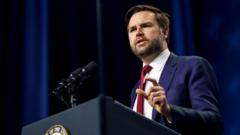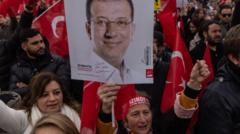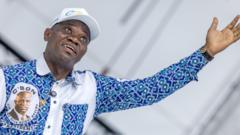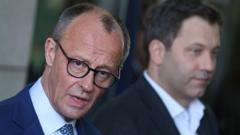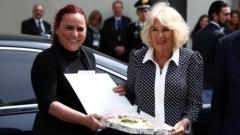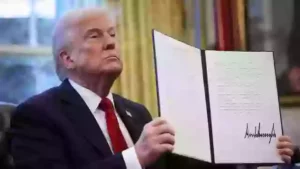Scholz's remarks emphasize Germany's sovereignty and historical commitment against fascism.
Chancellor Scholz Criticizes US VP Vance for Interference in German Politics

Chancellor Scholz Criticizes US VP Vance for Interference in German Politics
Olaf Scholz condemns support for far-right AfD party at Munich Security Conference.
Chancellor Olaf Scholz of Germany has publicly rebuked U.S. Vice President JD Vance for what he termed unacceptable intervention in Germany’s electoral process, particularly related to the support for the far-right Alternative for Germany (AfD) party. At the Munich Security Conference, Scholz reacted to Vance’s suggestion for German leaders to lift restrictions preventing the AfD from joining the federal government.
Vance’s comments were met with strong criticism from Scholz, who reminded attendees of Germany’s historical vow to prevent any return to fascism, a promise underscored by the nation’s dark past regarding the Holocaust. “A commitment to ‘never again’ is not reconcilable with support for the AfD,” Scholz declared, underscoring the implications of collaborating with a party he believes trivializes the horrors of Nazi Germany, including its concentration camps.
Scholz emphasized Germany's autonomy, saying it would not accept external directives on how to govern its democracy. “Where our democracy goes from here is for us to decide,” he affirmed, reinforcing the message that Germany seeks to determine its own political course independently of foreign influence, particularly from allies.
The conversation at the conference reflects broader tensions regarding nationalism and extremism in both Europe and the United States, raising questions about how historical narratives and commitments to democracy are perceived and respected internationally.
Vance’s comments were met with strong criticism from Scholz, who reminded attendees of Germany’s historical vow to prevent any return to fascism, a promise underscored by the nation’s dark past regarding the Holocaust. “A commitment to ‘never again’ is not reconcilable with support for the AfD,” Scholz declared, underscoring the implications of collaborating with a party he believes trivializes the horrors of Nazi Germany, including its concentration camps.
Scholz emphasized Germany's autonomy, saying it would not accept external directives on how to govern its democracy. “Where our democracy goes from here is for us to decide,” he affirmed, reinforcing the message that Germany seeks to determine its own political course independently of foreign influence, particularly from allies.
The conversation at the conference reflects broader tensions regarding nationalism and extremism in both Europe and the United States, raising questions about how historical narratives and commitments to democracy are perceived and respected internationally.


